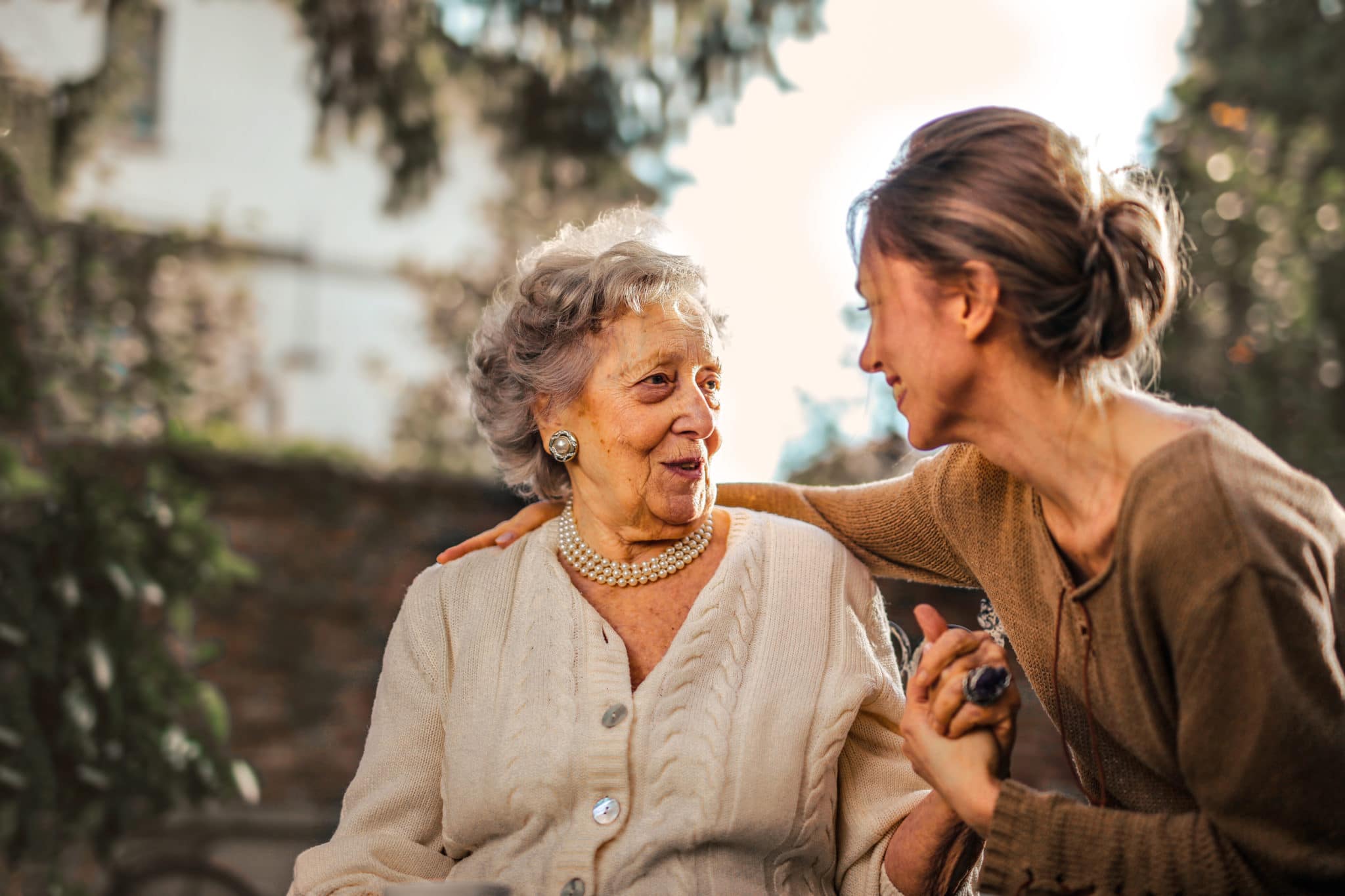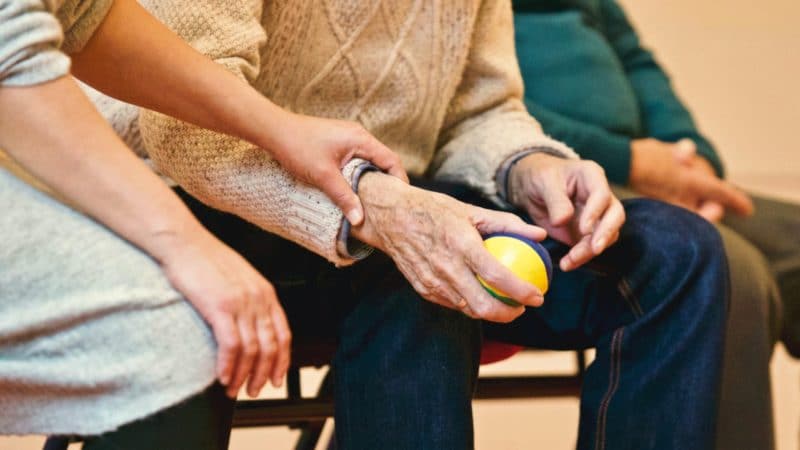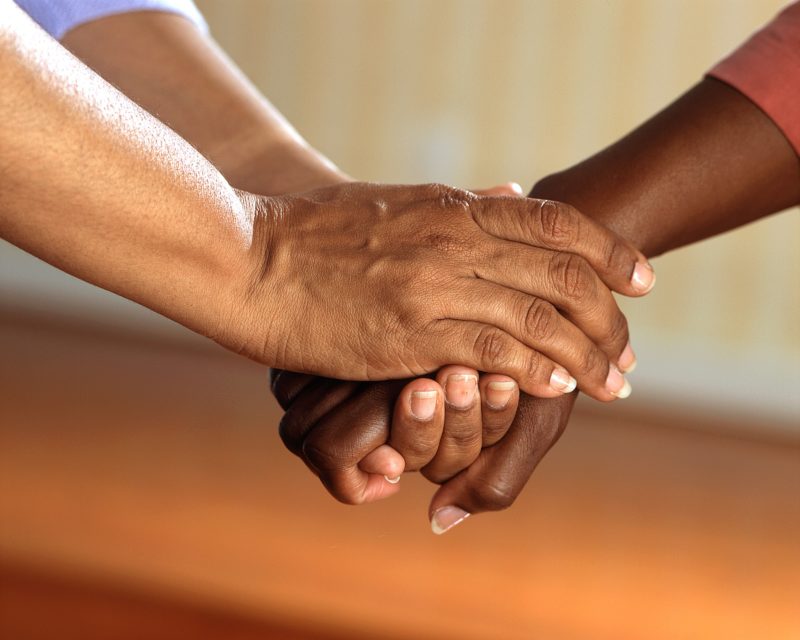
Hospice workers and caregivers are a crucial and integral part of end-of-life care, but avoiding caregiver burnout can be a challenge. From assisting with basic needs to monitoring medications, caregivers provide health and well-being support for the elderly and terminally ill. As you can imagine, caring for patients who are nearing the end of their lives can be both a rewarding and taxing job, and while many individuals go through caregiver training or receive caregiver certification, many others are family members tackling the challenges of caregiving for the first time.
Whether you’re a practicing caregiver, new to caregiving, or looking to learn more, here are a few things to keep in mind.
“Caregivers go through more than they will ever tell you. They give up a lot and rarely have a social life. They can get sick and emotionally worn out. It’s a lot for one person and you will never know until you have walked the road of a caregiver.” —Unknown
Who are hospice workers and caregivers and what do they do?
Hospice workers care for terminally ill people who are referred by a doctor for hospice care. A hospice team might include “a doctor, nurse, social worker, counselor, chaplain, home health aide, and trained volunteers” who not only address medical and physical needs but also any emotional or spiritual concerns that come with having a terminal illness. These caregivers often help family members of the terminally ill, too. Counselors can offer emotional and mental health while volunteers might help with things like housekeeping, grocery shopping, and other everyday needs.
Caregivers can also be family members who care for their loved ones at home, often taking time off of work and away from their daily lives to provide physical and emotional support. Switching to certified hospice care can help take some of the burdens off of family members to provide round-the-clock care.
Hospice is different from palliative care, which is for seriously ill patients, most of whom are not dying but need supervised care either at home or in a hospice house. No matter what level of service caregivers provide, they are usually on call 24 hours a day, 7 days a week keeping track of symptoms, pain, diet, medical equipment and supplies, therapy, and counseling, among other things.

A caregiver’s responsibilities are wide-reaching and ever-evolving
You can see how most all caregivers’ lives revolve around their patients’ care plans, which cover the above responsibilities in addition to medical appointments, medication, goals for care, meals, and much more. An elderly caregiver—someone caring for an aging loved one or patient—will help with a variety of needs and issues from illness, injury, and memory and mobility loss to meal preparation, bathing, and helping the patient get dressed each day. Most caregivers act as nurses, too, transporting hospice patients to and from doctors’ appointments and administering meds, while assessing discomfort levels and any new medical changes.
Many patients in hospice or under home care require assistance with day-to-day needs such as going to the bathroom, bathing, eating, driving, and housekeeping. On top of providing this level of care, many caregivers are the most constant source of companionship for their patients and their family members.
Providing round-the-clock care often leads to caregiver burnout
Family caregiving is both physically and emotionally demanding work. Between balancing patient needs, family wishes, and their own self-care, many caregivers experience burnout.
Caregiver burnout is a state of exhaustion similar to any other kind of burnout that involves physical, mental, and emotional shutdown. This often results in a change of mood or attitude. While some people experiencing burnout may shift to a constant state of positivity and hands-on caring, others might become distant, negative, and depressed.
Oftentimes, caregivers experience burnout because they don’t have the proper help or resources they need. Some hospice workers do too much physically and emotionally, while others, especially family members fall into financial trouble from the sheer cost of caring for a terminally ill person. It’s also easy for caregivers to burnout because they feel guilty if they don’t spend enough time with their patients or loved ones and so to compensate, they provide care 24/7 without taking moments for themselves.
Not only do individuals experience burnout from the physical and emotional demands of caregiving, but there are also factors such as role confusion or unrealistic expectations that influence a caregiver’s overall mental and physical help.
It’s difficult for many people to enter into the role of caregiver when they have been the spouse, child, or friend of their loved one for so long. Separating medical care from close, emotional relationships can be challenging for some. Family members who start acting as caregivers are usually used to having a positive impact on their loved one’s life and often expect that their special care will improve things. This may be an unrealistic expectation, especially for terminally ill patients or those suffering from diseases that cause physical and mental decline, such as dementia.
As you can see, all of this can be a lot for one person, and many caregivers become so burned out that they may even become sick themselves, unable to function well enough to continue providing quality care.
To know whether or not you or someone you know is experiencing burnout, look for symptoms similar to those of stress and/or depression. WebMD recommends looking out for:
- “Withdrawal from friends and family
- Loss of interest in activities previously enjoyed
- Feeling blue, irritable, hopeless, and helpless
- Changes in appetite, weight, or both
- Changes in sleep patterns
- Getting sick more often
- Feelings of wanting to hurt yourself or the person for whom you are caring
- Emotional and physical exhaustion
- Excessive use of alcohol and/or sleep medications
- Irritability”
Caregiver support isn’t always the first thing on people’s minds, especially when they’re processing and grieving an inevitable loss. However, it’s important for caregivers to seek the support they need, whether that means asking for help and more resources or taking a break to reset. If you are someone who knows a hospice nurse or family caregiver, take a moment to recognize their work and maybe even reach out to offer your support.
How to prevent burnout and provide quality care
Preventing burnout is challenging for some, but it’s not impossible. Start by reaching out to someone you trust—this could be a co-worker, friend, or another family member—and talk to them about how you’re feeling. Remember, you’re not talking to the person you’re caring for, so it’s okay to let out any frustrations or feeling you’re having. Having negative feelings does not make you a bad caregiver or bad spouse/child/etc. If you don’t feel comfortable confiding in someone close to you, you can also talk to a professional, such as a therapist, social worker, or clergy member.
Keep your expectations and goals realistic—you may need help as a caregiver, especially if you are the sole family member providing care. It’s okay to ask others for help or even turn to respite care, programs that provide either in-home or out-of-home care for a few hours a day, so that you have time to take care of yourself in order to be a more effective caregiver.

Joining a support group can help you avoid caregiver burnout
Joining a caregiver support group or workshop can also help. These groups provide you with a safe space to connect with others who might be working in similar situations or who have advice on everyday caregiving. Because caregiving can be such a grueling job, it’s helpful to talk with others who know what you’re going through and lighten the burden a little. Support groups are also a great source for tips on how to combat burnout, relieve stress, and handle intense or painful situations.
If you are a caregiver in the Philadelphia area, here are a few resources and groups to check out:
- CAregivers REducing Stress (CARES)
- The Alzheimer’s Association Caregiver Support Groups
- Schizophrenia and Related Disorders Alliance of America (SARDAA)
You can also consult your local Area Agency on Aging to find a group that is a good fit for you.



Recent Comments